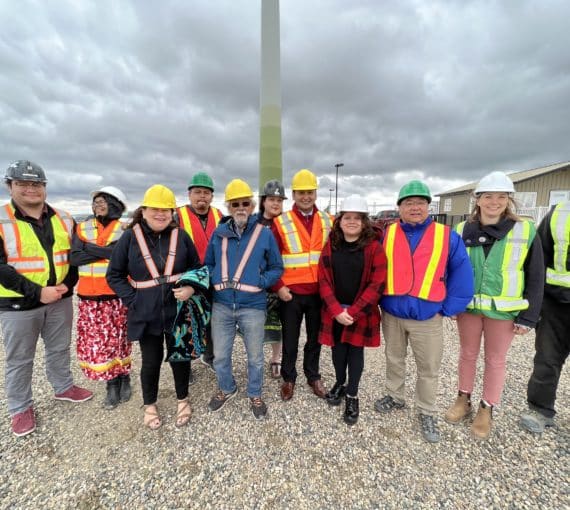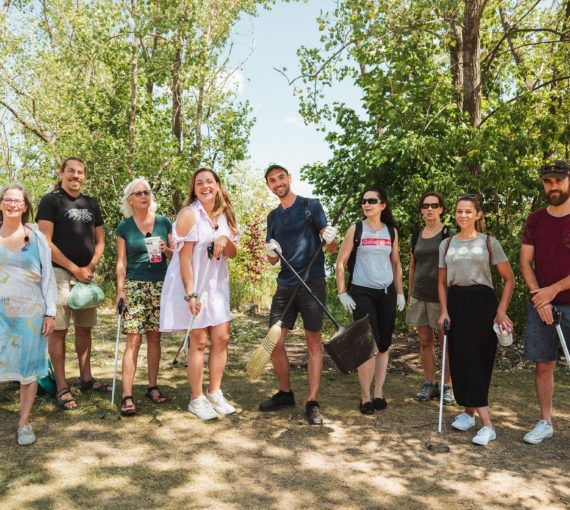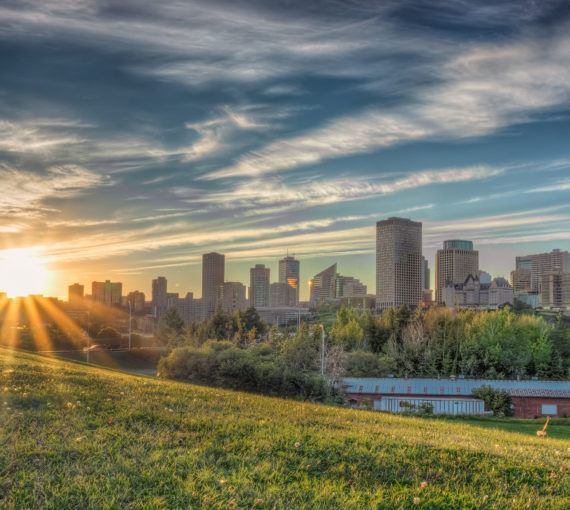
A well-being economy puts your quality of life and the health of the natural world first. What are these things worth to you? Probably a lot! (Photo: Vince Fleming via Unsplash)
Humans are interdependently embedded in the complex web of relationships that make up Earth’s biosphere, connected to and dependent on all other species, and with air, water, soil and sunlight.
But nature is indifferent to our species. If we don’t intercede on our own behalf to create a planet that’s habitable for humans, it will continue without us.
We have to change our ways.
Here are four victories you can celebrate — for your power to effect change in your everyday life, for raising your consciousness about environmental racism, for supporting an economy that prioritizes human and planetary well-being, and for pushing Canada to ensure affordable clean energy for all.
What we do to nature, we do to ourselves.
David Suzuki
Growing the sustainable lifestyle community
Worrying about the planet can feel overwhelming…
But many people making small changes each day adds up. AND it supports the larger societal transformation needed to protect nature so it can sustain all life.
We’ve been providing resources for people to green their lives for more than 10 years. Now that lifestyle outreach program has a new name and look. And even more people love Living Green.
This community has grown steadily to more than 48,000 passionate supporters. They receive sustainable living tips and resources such as ways to reduce plastic and waste, help pollinators, lower personal carbon emissions and avoid toxic ingredients in body care and home cleaning products — and more! And all are encouraged to take part in the conversation about everyday ways to create a better world.
Individual action reinforces the broader cultural transformation and systemic change humanity needs to confront the challenges of the climate and biodiversity crises. Living Green provides easy ways for people to help protect nature every day — with what they have, when they can, where they are.
It’s empowering and fun. Join the community now!
Promoting environmental justice
Canada — known globally for breathtaking, pristine landscapes — is rife with the ugliness of environmental injustice.
Underprivileged, racialized and Indigenous communities here are inequitably and disproportionately burdened by damages and risks from climate change and industrial pollution. Besides having to bear the burden of chronic socioeconomic stress, their voices and concerns are often drowned out by high-powered, monied investors and developers.
Your support helps bring these environmental injustices to light, and provides tools, strategies and policies to address them.
Our report, “For Environmental Justice in Quebec: Facts, Arguments, Courses of Action” looks at the situation, makes the case for action and recommends ways to address equity, public health and human rights issues. A series of personal accounts share residents’ daily experiences, such as how high levels of lead in soil and metal dust particles from mining operations are endangering children’s health, and how communities are mobilizing to effect change.
A one-month ad campaign in Montreal subway and bus stations extended our reach and helped people not yet a part of our community quickly access information and get involved. (You can too.)
Equitable measures save lives and health care costs, prevent ineffective public policies and better prepare all people in Canada for the future, together.
Building a well-being economy
Knowing your loved ones are safe and healthy, have access to clean water and are getting out in nature… What are these things worth to you?
Probably a lot! But the current economic model values none of them.
A well-being economy puts your quality of life and the health of the natural world first. We’re facilitating a first-of-its-kind alliance to transform the economic system and build better lives for all.
We’re stewarding development of the Well-being Economies Alliance for Canada and Sovereign Indigenous Nations. WEAll Can is part of the global Wellbeing Economy Alliance. It inspires us all to act for greater well-being for people and the planet, prioritizing a world where everyone is sufficiently provided for and lives in harmony with nature.
We also joined with G15+ and organizations from many sectors to release Indicators of Well-Being in Quebec. Using 51 economic, social and environmental indicators to measure the well-being of people in Quebec, this reference tool aims to help Quebec governments at all levels put well-being at the heart of collective decisions. It’s a historical first in Canada.
Available to all public policy-makers in the province, it will help:
- Improve understanding of the interdependence of the economy, society and nature
- Pass policies in line with what people need and want
- Identify targets and guide budgetary and strategic planning
Inspired by British economist Kate Raworth’s “doughnut economics,” which maps how humans can thrive without exceeding planetary boundaries, the indicators value environmental, social and economic factors.
Solving the energy poverty crisis
The cost-of-living and climate crises share the same root cause: expensive oil and gas with volatile prices. One study showed that 25 cents out of every dollar spent in the last two years went directly to profits in mining and gas extraction.
Our report Keeping the Lights On: Ensuring energy affordability, equity and access in the transition to clean electricity in Canada identifies the challenges of living with energy unaffordability in Canada and offers solutions to support those who need it most.
More than one in 10 households in Canada live in energy poverty, struggling to have a sufficient level of energy services at home. This means being either too cold in winter or too hot in summer and having to limit use of lighting and appliances because of cost. This can have damaging effects on health and social relationships and, in extreme cases, can even cause deaths.
As we push for the move to 100 per cent affordable, secure, renewable power throughout Canada by 2035, it’s crucially important to consider these issues of energy justice.
Powering our lives with clean electricity brings affordability as well as climate wins. Watch the webinar to learn more.
Finding Solutions features stories of caring people like you who make everything here possible. You can read, share, discuss, take action, join, donate. Whatever you choose, you’re helping protect Earth’s life-support systems. Thank you.


